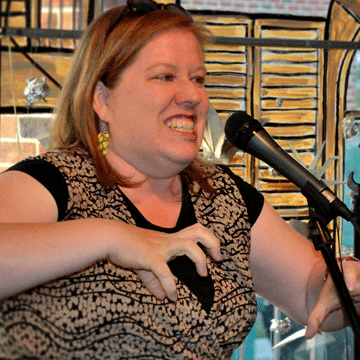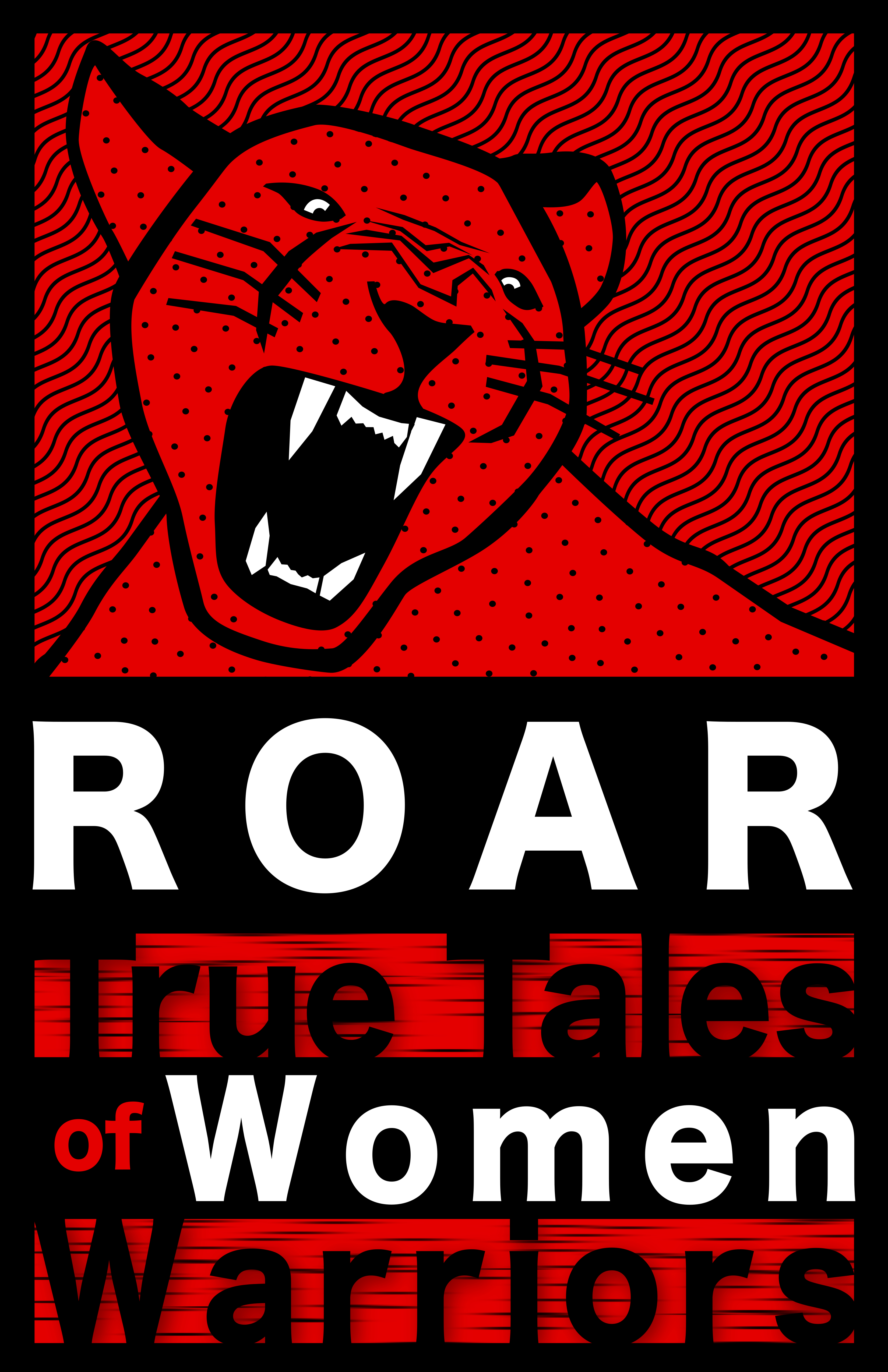In “Spotlight on You,” one of our storytelling worskhops, students workshop a story, learn storytelling structure, character development, and how to get the audience to care. As our classes have just recently launched, we are featuring the four Better Said Than Done storytelling teachers on our blog. Today, it’s all about Anna Marie Trester.

When did you tell your first story and what was that experience like?
I have been telling stories for as long as I can remember. My mother tells me that I was developing my comedic timing even with the noises that I would make as a baby in church. Apparently, just as the priest was building to some big moral proclamation of great import, he would pause dramatically, which I would take as the opportunity to let out some giant squeal, causing the audience (er, congregation) to burst into laughter. Once I learned that I could do that, I was hooked. Poor man had to change his style of making his homily.
Why do you think people are drawn to storytelling?
I have read that our brains are hard-wired for story and I experience it at a very primordial level as a way of making sense of lived experience. Through story, we come to understand who we are and how we are connected to other people. I can remember my sophomore year English teacher Mr. Timson, used to spend entire classes just reading to us. We were 13 years old, probably bouncing off the walls, but we would sit spellbound for an entire hour if he would just “read us a story.” In that moment, we were all 3 years old.
Worst moment on stage?
I had a recurring nightmare for much of my young adulthood about suddenly being placed onstage and realizing that I had forgotten my lines. While this wasn’t anything that I had actually experienced, it was a very real fear, one that was literally haunting me, and it motivated me to take an improv class and then storytelling classes. Now that I have faced the actual fear of getting up on that stage in front of a room full of people, the nightmares have stopped. I have come to understand that the reality of that experience is not in fact lonely at all, so that robbed the power of that nightmare and I draw on that knowledge every day in my day job when I get up in front of a classroom!
Best stage experience and why?
When you are fully in the present moment, and you know your story inside out and backwards and you yourself are reliving that experience and seeing it all again, and your audience is eating out of your hands and then you are able to slow it down to savor an emotion, or a description, or a hang on to a suspenseful pause. That is exhilarating, and I feel like I am superhero who can distort the experiencing of time!
Thoughts on “everyone can be a storyteller.”
Everyone has a unique perspective and a way of looking at the world that is theirs and theirs alone. The challenge lies in finding it and articulating it. That is what a room full of people in a class (or in an audience) can tell you – storytelling is like sonar, you have to have something bounce it back before you understand anything about it.
What is your teaching experience?
I believe in the power of discovery and as a teacher, I work hard to create an environment of trust and support to enable the space for students to lay down their fears and play. I trust in the power of “mistakes,” a skill that I model everyday when I teach Linguistics, and in the improv teaching that I have done at Washington Improv Theater for the past 7 years.
If you’d like to watch one of Anna Marie’s stories, you can watch it here:
If you are interested in taking a storytelling workshop, you can get all the information on our storytelling workshops here or find a list of available classes to register for here.

